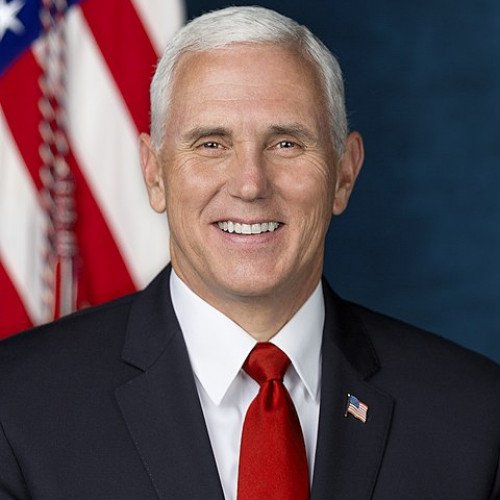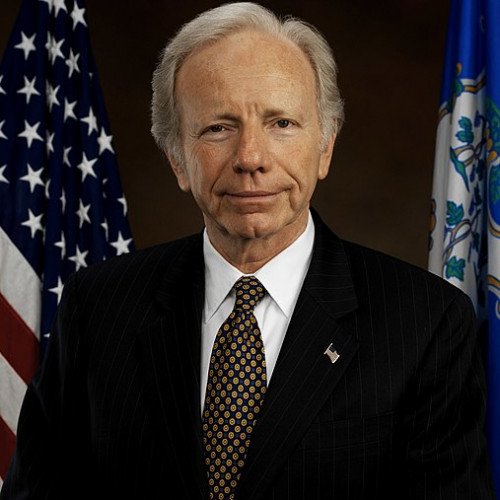Mike Pence VS Joe Lieberman

Mike Pence
Michael Richard Pence (born June 7, 1959) is an American politician who served as the 48th vice president of the United States from 2017 to 2021. A member of the Republican Party, he was the 50th governor of Indiana from 2013 to 2017. Pence was also a member of the U.S. House of Representatives from 2001 to 2013. Pence was born and raised in Columbus, Indiana, and is the younger brother of U.S. representative Greg Pence. He graduated from Hanover College and earned a law degree from the Indiana University Robert H. McKinney School of Law before entering private practice. After losing two bids for a congressional seat in 1988 and 1990, he became a conservative radio and television talk show host from 1994 to 1999. Pence was elected to the U.S. House of Representatives in 2000 and represented Indiana's 2nd and 6th congressional districts from 2001 to 2013. He served as the chairman of the House Republican Conference from 2009 to 2011, the third-highest position in the House Republican leadership. Pence described himself as a "principled conservative" and supporter of the Tea Party movement, saying he was "a Christian, a conservative, and a Republican, in that order."Pence successfully sought the Republican nomination for the 2012 Indiana gubernatorial election when term-limited Mitch Daniels retired. He defeated former Indiana House speaker John R. Gregg in the closest gubernatorial election in 50 years. Upon becoming governor in January 2013, Pence initiated the largest tax cut in Indiana's history and pushed for more funding for private education initiatives. Pence signed bills intended to restrict abortions, including one that prohibited abortions if the reason for the procedure was the fetus's race, gender, or disability. After Pence signed the Religious Freedom Restoration Act, he encountered fierce resistance from moderate members of his party, the business community, and LGBT advocates. The backlash against the RFRA led Pence to amend the bill to prohibit discrimination based on sexual orientation, gender identity, and other criteria. Pence withdrew his gubernatorial reelection campaign in July 2016 to become the running mate of Republican presidential nominee Donald Trump, who went on to win the 2016 presidential election. He was inaugurated as vice president of the United States on January 20, 2017. As vice president, Pence has chaired the National Space Council since it was reestablished in June 2017. In February 2020, Pence was appointed chairman of the White House Coronavirus Task Force, which was established in response to the COVID-19 pandemic in the United States. Pence and Trump lost their bid for re-election in the 2020 United States presidential election to Joe Biden and Kamala Harris, although the Trump campaign refused to concede, made allegations of election fraud, and filed lawsuits in multiple states, most of which have been rejected by the courts. Following the storming of the Capitol by supporters of Trump and despite Trump's urging him to overturn the results, Pence certified the Biden-Harris ticket as the winner of the election. Pence was vilified by Trump and threatened by Trump's supporters for not trying to overturn the election results.
Statistics for this Xoptio

Joe Lieberman
Joseph Isadore Lieberman (; born February 24, 1942) is an American politician, lobbyist and attorney who served as a United States Senator from Connecticut from 1989 to 2013. A former member of the Democratic Party, he was its nominee for Vice President of the United States in the 2000 election. During his final term in office he was officially listed as an independent Democrat and caucused with and chaired committees for the Democratic Party. Lieberman was elected as a "Reform Democrat" in 1970 to the Connecticut Senate, where he served three terms as Majority Leader. After an unsuccessful bid for the U.S. House of Representatives in 1980, he served as state Attorney General from 1983 to 1989. He narrowly defeated Republican incumbent Lowell Weicker in 1988 to win election to the U.S. Senate, and was re-elected in 1994, 2000, and 2006. He was the Democratic nominee for Vice President in the 2000 United States presidential election, running with presidential nominee and then Vice President Al Gore, and becoming the first Jewish candidate on a major American political party presidential ticket.In the 2000 presidential election, Gore and Lieberman won the popular vote by a margin of more than 500,000 votes, but lost the deciding Electoral College to the Republican George W. Bush/Dick Cheney ticket 271–266. He also unsuccessfully sought the Democratic nomination in the 2004 presidential election. During his Senate re-election bid in 2006, Lieberman lost the Democratic Party primary election, but won re-election in the general election as a third party candidate under the "Connecticut for Lieberman" party label. Never a member of that party, he remained a registered Democrat while he ran.Lieberman was officially listed in Senate records for the 110th and 111th Congresses as an Independent Democrat, and sat as part of the Senate Democratic Caucus. However, after his speech at the 2008 Republican National Convention in which he endorsed John McCain for president, he no longer attended Democratic Caucus leadership strategy meetings or policy lunches. On November 5, 2008, he met with Senate Majority Leader Harry Reid to discuss his future role with the Democratic Party. Ultimately, the Senate Democratic Caucus voted to allow him to keep the chairmanship of the Senate Committee on Homeland Security and Governmental Affairs. Subsequently, he announced that he would continue to caucus with the Democrats. Before the 2016 election, he endorsed Hillary Clinton for president. As Senator, Lieberman introduced and championed the Don't Ask, Don't Tell Repeal Act of 2010 and legislation that led to the creation of the Department of Homeland Security. During debate on the Affordable Care Act (ACA), as the crucial 60th vote needed to pass the legislation, his opposition to the public health insurance option was critical to its removal from the resulting bill signed by President Barack Obama.